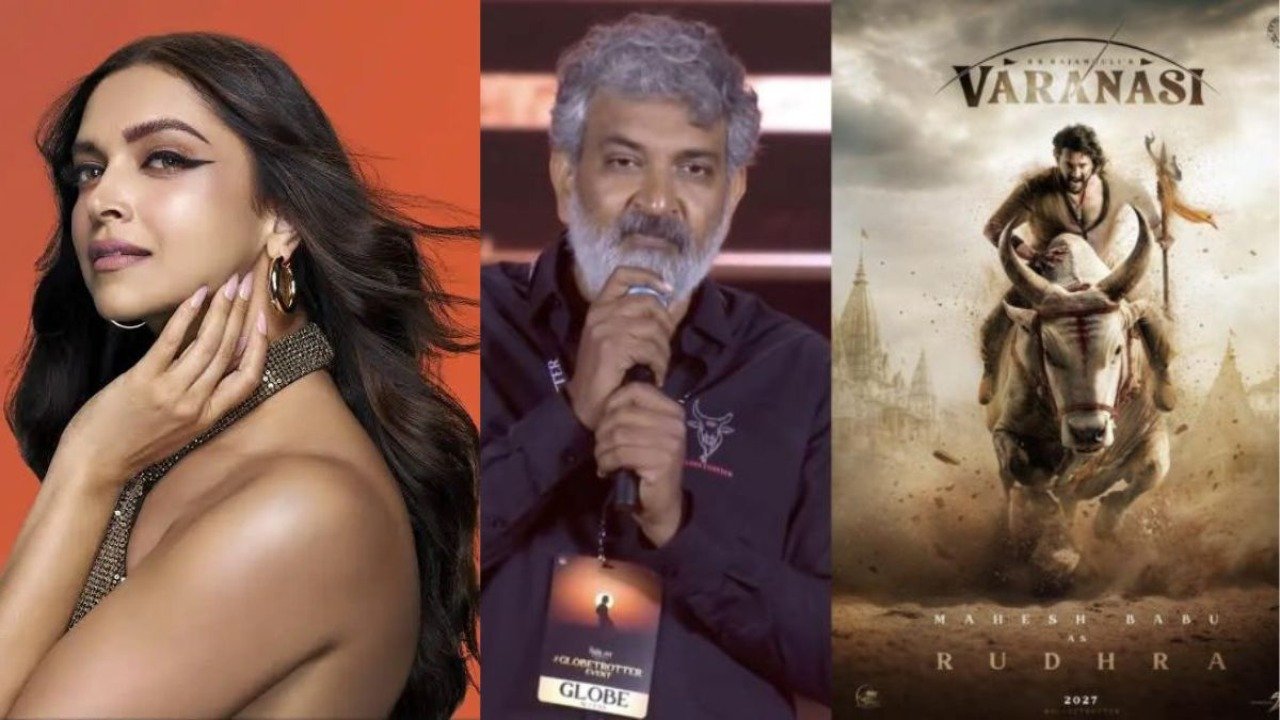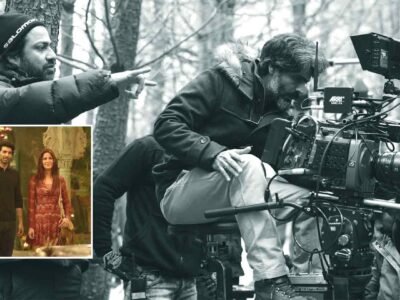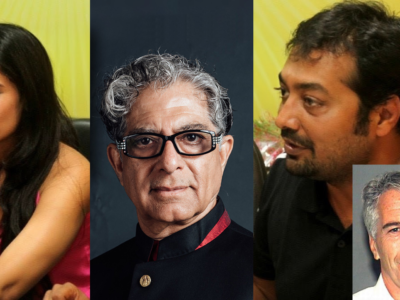Rajamouli unveiled the title of his much-anticipated project Varanasi at a grand fan event at Ramoji Film City on Saturday. His comments of Mahesh Babu’s working style brought back the debate on Deepika Padukone’s demand for an 8-hour long work day
The film industry is once again in the spotlight for issues of gender equality and work culture, following discussions around Deepika Padukone’s request for an eight-hour workday. The debate comes as S S Rajamouli unveiled the title of his much-anticipated project Varanasi at a grand fan event at Ramoji Film City on Saturday, attended by stars Mahesh Babu, Priyanka Chopra Jonas, and Prithviraj Sukumaran.
During the launch, Rajamouli praised his leading man Mahesh Babu, saying, “There is something about Mahesh Babu’s character. Something we can all learn from him. When he comes to work or shooting, he does not touch his phone. He works for eight hours, and only looks at his phone when he goes back.” This revelation highlighted the disciplined work culture of some actors, sparking comparisons with the treatment Padukone has received for asking for similar working conditions.
Padukone, one of Bollywood’s most experienced and respected actors, had reportedly included an eight-hour work clause in her agreements. Some are now asking why such a formal legal step was necessary. After all, she is not a newcomer; she understands the workings of the industry. If she could leave after eight hours or stay longer when required, why would she need a legal clause at all? The answer, critics argue, may lie in whether her requests were previously ignored or overlooked.
The controversy has raised questions about whether her work needs were respected. Were her requests ever heard or acknowledged? Were they ever accommodated informally, as male actors’ schedules often are? If her needs could have been met without involving legal documentation, then why formalise it? The implication, many feel, is that she may have faced resistance that others—particularly men—do not encounter.
Comparisons with male actors have fuelled the debate. The comments by Rajamouli about Mahesh Babu’s disciplined eight-hour workday suggest that male stars routinely maintain structured schedules without criticism. So why did Padukone face character attacks for asking for the same working conditions? Social media and public discussions have increasingly framed the issue as one of gender bias, highlighting the double standards that women in the film industry can face, even at the highest levels.
The situation has opened a broader conversation about fair working conditions, respect, and gender equality in Bollywood. While the industry has seen some progress in recent years, incidents like this reveal that female actors may still need to take extra steps to secure basic rights that their male counterparts enjoy routinely.
As Varanasi generates excitement among fans, the discourse around work hours and gender in the film industry continues. Deepika Padukone’s case serves as a reminder that behind the glamour and fame, real challenges persist, and the push for equality in professional spaces remains an ongoing struggle.
















